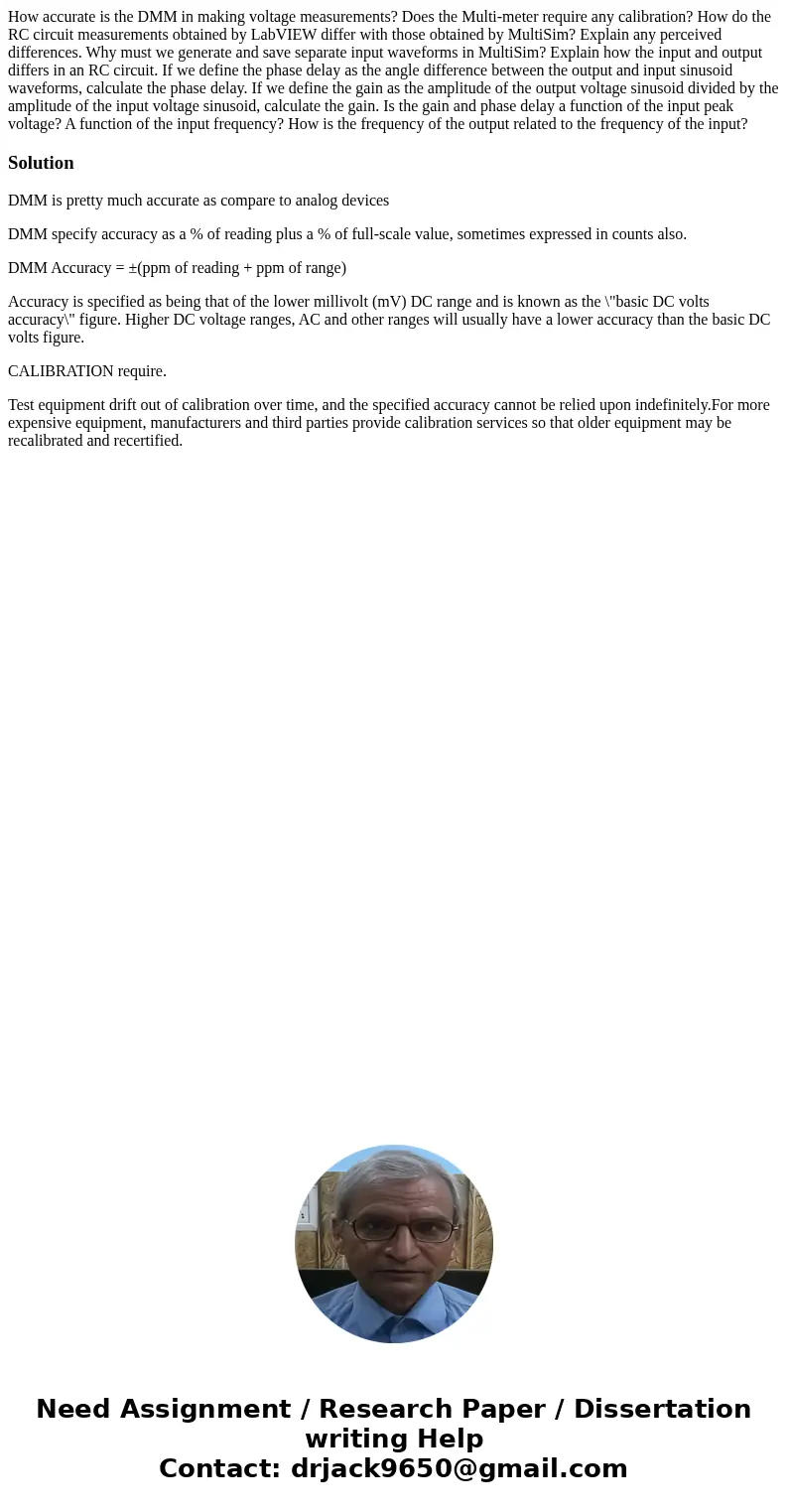How accurate is the DMM in making voltage measurements Does
How accurate is the DMM in making voltage measurements? Does the Multi-meter require any calibration? How do the RC circuit measurements obtained by LabVIEW differ with those obtained by MultiSim? Explain any perceived differences. Why must we generate and save separate input waveforms in MultiSim? Explain how the input and output differs in an RC circuit. If we define the phase delay as the angle difference between the output and input sinusoid waveforms, calculate the phase delay. If we define the gain as the amplitude of the output voltage sinusoid divided by the amplitude of the input voltage sinusoid, calculate the gain. Is the gain and phase delay a function of the input peak voltage? A function of the input frequency? How is the frequency of the output related to the frequency of the input?
Solution
DMM is pretty much accurate as compare to analog devices
DMM specify accuracy as a % of reading plus a % of full-scale value, sometimes expressed in counts also.
DMM Accuracy = ±(ppm of reading + ppm of range)
Accuracy is specified as being that of the lower millivolt (mV) DC range and is known as the \"basic DC volts accuracy\" figure. Higher DC voltage ranges, AC and other ranges will usually have a lower accuracy than the basic DC volts figure.
CALIBRATION require.
Test equipment drift out of calibration over time, and the specified accuracy cannot be relied upon indefinitely.For more expensive equipment, manufacturers and third parties provide calibration services so that older equipment may be recalibrated and recertified.

 Homework Sourse
Homework Sourse